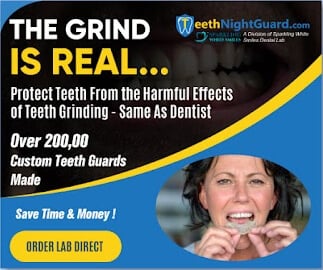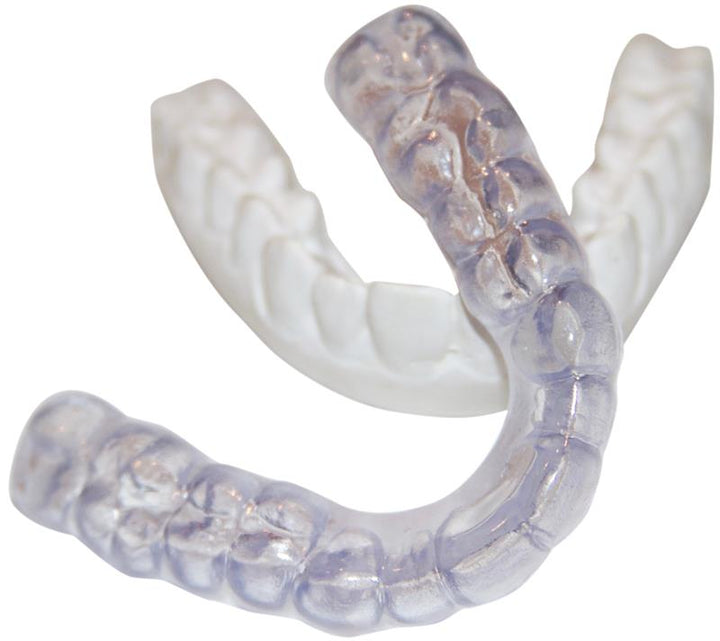Anger is a powerful emotion that can send shockwaves through our bodies, but did you know it could also be the hidden culprit behind your teeth grinding? Yes, that's right! In this eye-opening blog post, we delve deep into the connection between anger and teeth grinding, unmasking the surprising ways these two are intertwined. Get ready to discover why your pearly whites may be paying the price for your fiery temper and how you can regain control over both your emotions and dental health. Brace yourself for an enlightening journey as we uncover the mysterious link between anger and teeth grinding!
When you experience anger, your body releases a stress hormone called cortisol. This hormone can cause a number of physical reactions, such as teeth grinding (or bruxism) is a condition that affects millions of people worldwide and can have serious consequences for your oral health. While cortisol is the main culprit behind teeth grinding, there are other factors that can contribute to the problem. For example, certain medications can dry out your mouth and make you more likely to grind your teeth. Alcohol and tobacco use can also increase the risk of bruxism. If you suspect that you may be grinding your teeth, it's important to see a dentist or other healthcare provider as soon as possible. Bruxism can lead to tooth damage, jaw pain, headaches, and other problems. Treatments for bruxism range from simple lifestyle changes to dental appliances or surgery.
What is Teeth Grinding?
When we think of teeth grinding, we usually associate it with stress. And while it’s true that anger and stress are often triggers for teeth grinding, there’s actually a lot more to it than that. Teeth grinding (or bruxism, as it’s called by dentists) is a condition that can be caused by a number of different things, including misaligned teeth, an abnormal bite, chewing on hard objects (like ice or pen caps), and even sleep apnea. But why is it that anger so often leads to teeth grinding? Well, there are a few theories. One is that when we get angry, our body goes into “fight or flight” mode. This means that our sympathetic nervous system is activated, which in turn causes our heart rate and blood pressure to rise. This increased activation of the sympathetic nervous system has been linked to teeth grinding. Another theory is that when we get angry, we tend to clench our jaw. This clenching puts a lot of pressure on the temporomandibular joint (TMJ), which is the joint that connects the jaw to the skull. This pressure can lead to inflammation and pain in the TMJ, which can in turn lead to teeth grinding. Whatever the cause, it’s important to find ways to deal with your anger in a healthy way before it leads to teeth grinding (and other problems like headaches and jaw pain). If
The Mind-Body Connection
There is a strong mind-body connection between our emotions and our physical health. When we experience negative emotions like anger, it can trigger physical reactions in our bodies like teeth grinding. Teeth grinding (bruxism) is a common stress-related habit that can cause serious damage to our teeth and jaws. It is often triggered by feelings of anxiety or frustration. If you find yourself grinding your teeth, it's important to find ways to manage your stress and release your anger in healthy ways. There are many techniques you can try to help reduce stress and relax your jaw, such as:
• Deep breathing exercises
• Progressive muscle relaxation
• Guided imagery or visualization
• Meditation or mindfulness practices If you're struggling to manage your stress on your own, don't hesitate to reach out for help from a mental health professional. They can provide you with additional tools and support to help you cope with stressful situations in a healthy way.
Why Does Anger Trigger Teeth Grinding?
When we experience anger, our fight-or-flight response is activated. This triggers a release of adrenaline and cortisol, which cause our muscles to tense up. For some people, this tension is experienced in the jaw, which can lead to teeth grinding (bruxism). Teeth grinding is a way for our body to release the built-up tension and energy associated with anger. While teeth grinding may provide temporary relief from anger, it can also lead to long-term damage to the teeth and jaw. If you find yourself clenching or grinding your teeth when you're angry, there are several things you can do to help stop the habit:
• Practice stress-relieving activities like yoga or meditation.
• Take breaks throughout the day to relax your jaw muscles.
• Massage your temples and jawline.
• Avoid chewing gum or eating hard candy. If you're unable to control your teeth grinding on your own, consult with a dentist or doctor. They may recommend wearing a mouthguard at night to protect your teeth from damage.

How to Manage Teeth Grinding Triggered by Anger
We all have moments of anger. Maybe someone cuts you off in traffic, or your boss yells at you for something that wasn't your fault. In the moment, it can be hard to keep your cool. But if you find yourself grinding your teeth when you're angry, it's important to take steps to manage it. Teeth grinding (bruxism) is a common condition that can be caused by stress or anxiety. It can also be triggered by certain medical conditions, such as sleep apnea. But anger is one of the most common triggers for teeth grinding. When you're angry, your body releases hormones like adrenaline and cortisol. These hormones increase your heart rate and blood pressure, and they can also cause your jaw muscles to contract. This can lead to teeth grinding and clenching. Over time, teeth grinding can damage your teeth and cause other problems like headaches, jaw pain, and ear pain. If you think your anger is causing you to grind your teeth, there are some things you can do to manage it: -Identify your triggers: What situations or people make you angry? Once you know what sets you off, you can try to avoid those triggers or be prepared for them ahead of time. -Practice relaxation techniques: When you feel yourself getting angry, take a few deep breaths and try to relax your jaw muscles. You can also try progressive muscle relaxation, which involves tensing and relaxing different muscle groups
Teeth grinding is a common, yet complex behavior that often occurs as an unconscious response to feelings of anger or frustration. By understanding the connection between teeth grinding and its psychological triggers, we can begin to explore ways in which individuals can better manage their emotions and reduce the frequency with which they grind their teeth. This knowledge may not only help those who suffer from bruxism but also those who deal with chronic anger issues. With this increased awareness, we can work towards finding more effective methods to combat these difficult emotions.
JOIN OUR NEWSLETTER! RECEIVE PROMOTIONS & COUPONS FOR CUSTOM DENTAL NIGHT GUARDS
INTERESTED IN BECOMING AN AFFILIATE OF TeethNightGuard.com?
Earn 15% commission for simply sharing with your friends and family through email or social media such as Facebook, Reddit, or Twitter. Sign up and learn more here: https://www.teethnightguard.com/pages/register-affiliate-account
EXTRA DURABLE 3MM CUSTOM NIGHT GUARD - MAXIMUM DURABILITY AND COMFORT - MOST RECOMMENDED

$119.99
Item Number SWSPRO Manufacturer Sparkling White Smiles Dental Lab Rating Product Description Love this product? Share the product page link with Friends and Family. Simply copy the product page web address or this link: Custom Teeth Night Guard and post!… Read More